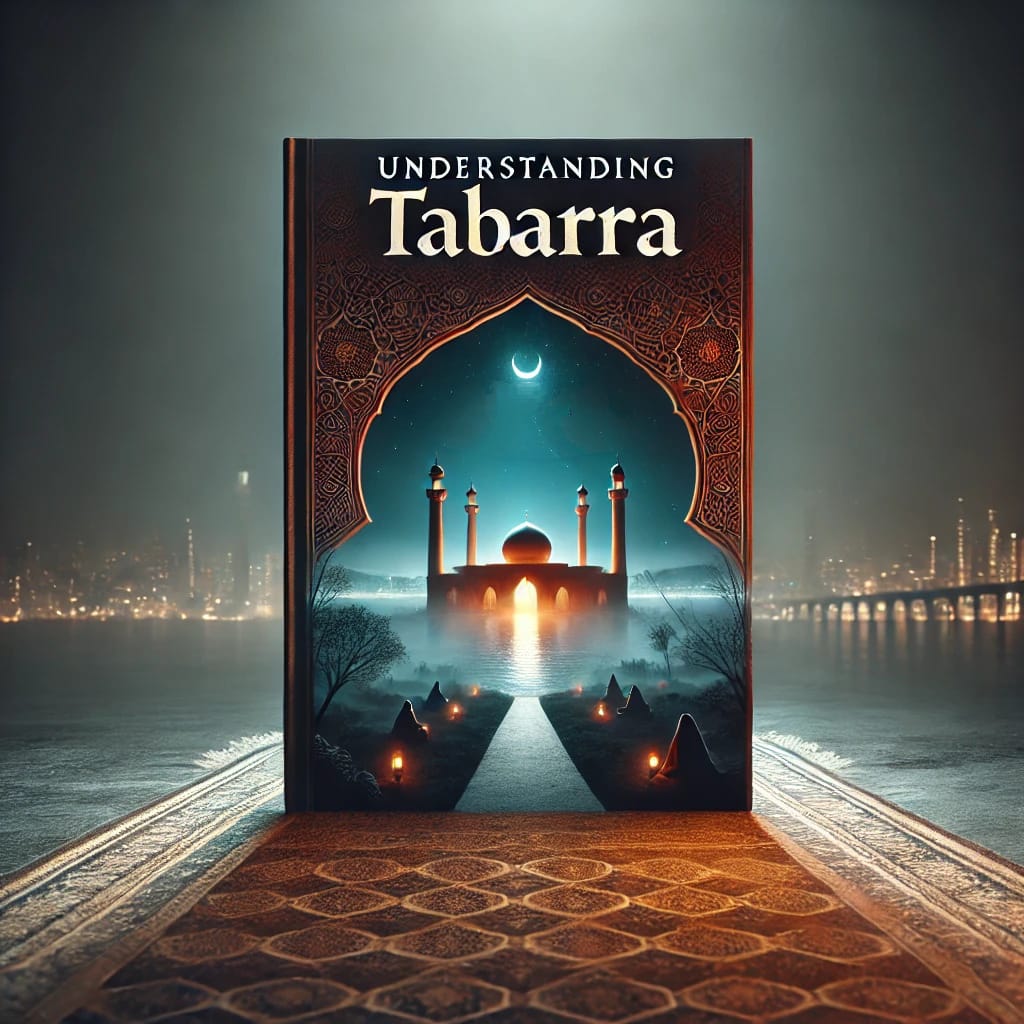Understanding Tabarra: Its Role and Significance in Islam
Tabarra, an Arabic term that translates to "disassociation" or "dissociation," holds significant importance in Shia Islamic theology. It involves a clear disavowal of the enemies of the Prophet Muhammad and his family, the Ahlul Bayt. This concept is not just a declaration of non-support; it represents a moral and religious stance against injustice, tyranny, and those who opposed the teachings of the pure Islam.
This is to explore the concept of Tabarra, its origins, religious justification, and its implications in both historical and contemporary contexts.
Theological Foundations
The roots of Tabarra are deeply entrenched in the Quran and Hadith. The Quranic command to dissociate from those who defy God is evident in several verses. Here are just 3 verses from the holy Quran:
- Surah Al-Mujadila, Verse-22:
“You shall not find a nation believing in Allah and the Last Day loving those who oppose Allah and His Messenger, even though they were their own parents, or their sons, or their brothers, or their kinsfolk. [for] such, He has written faith into their hearts and strengthened them with a spirit from Him. He will admit them into Gardens with streams running in them, to remain in them for ever. Allah is pleased with them and they are pleased with Him. They are the Party of Allah; and the Party of Allah are indeed the felicitous!”
- Surat Al-e-Imraan, Verse 28:
"Let not believers take disbelievers as allies rather than believers. And whoever [does that] has nothing with Allah, except when taking precaution against them in prudence. And Allah warns you of Himself, and to Allah is the [final] destination."
- Surat An-Nisa, Verse 144:
"O you who have believed, do not take the disbelievers as allies instead of the believers. Do you wish to give Allah against yourselves a clear case?"
These Quranic verse clearly, say that the true believers do not take God's and His Messenger's enemies as allies, showing no affection towards them. Such verses provide the scriptural basis for the practice of Tabarra, aligning it with the broader Islamic principles of standing against falsehood and supporting the truth.
The holy prophet has commanded his companions to disassociate from those who show the enmity towards his holy progeny (Ahlul Bayt)
Abu Sa'id Khudri says: When Ali (peace be upon him) married Fatimah (peace be upon her), the Prophet (peace be upon him and his progeny) would stand at their door every morning for forty days and would say:
"I am at war with those who wage war against you (Ali &Fatimah), and I am at peace with those who are at peace with you."
(Kanz -al-Ummal, Volume 12, Page 103, Hadith No. 34194)
Historical Context
Historically, Tabarra has been an expression of the Shia community’s allegiance to the holy Prophet and his progeny, specially the divine 12 Imams, and their distancing from those who persecuted or oppressed them. This has included figures historically opposed or hostile to Ahul Bayt, such as certain caliphs and their administrators, seen as usurpers of the rightful spiritual and temporal authority of the holy progeny of the prophet. Tabarra is thus seen as a form of loyalty to the teachings of the Prophet Muhammad as preserved by his family and a condemnation of those who harmed them.
Significance in pure Islam
In the Islamic theology, Tabarra goes beyond historical context; it is a continuous moral stance. It is one of the Branches of Religion, which are ten practices fundamental to Shia Muslim faith.
Practicing Tabarra means actively avoiding the emulation of those who have historically oppressed the Ahlul Bayt and opposing their actions and characteristics. This involves not just a personal or silent disapproval but often public expressions of distancing from such figures.
Practical Implications
Practically, Tabarra manifests in various forms:
Religious Observances: Shia rituals and commemorations often include expressions of Tabarra, particularly during Ashura, which marks the martyrdom of Imam Hussein at Karbala. This event symbolizes the struggle against tyranny and is a central narrative in Shia identity.
Community Guidance: The scholars use the concept of Tabarra to guide followers on how to interact with historical narratives and contemporary issues, reinforcing the community's identity and ethical stance.
Social and Political Dimensions: Tabarra can also influence political alignments and social attitudes within Shia communities, informing their domestic and international allegiances and oppositions.
Contemporary Relevance
Today, Tabarra remains a potent symbol of resistance against oppression and injustice within many Shia communities worldwide. It resonates not just in religious teachings but also in how these communities react to modern social and political challenges. However, it is essential to note that the application of Tabarra should be guided by wisdom and a deep understanding of the principles of justice and mercy that underpin Islamic teachings, to ensure it contributes to peace and unity rather than division.
To learn more about pure Islam, visit the website: findtruth.co.uk











